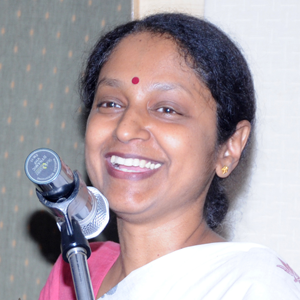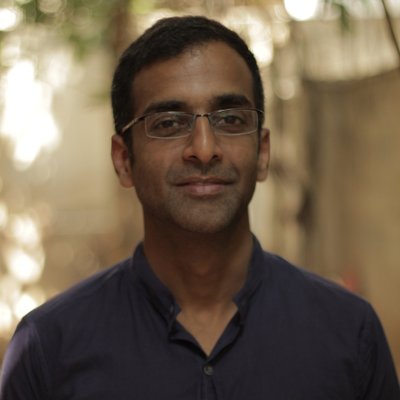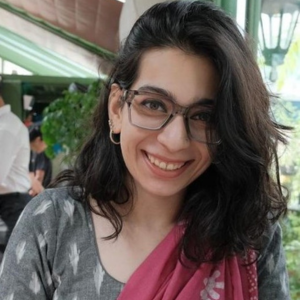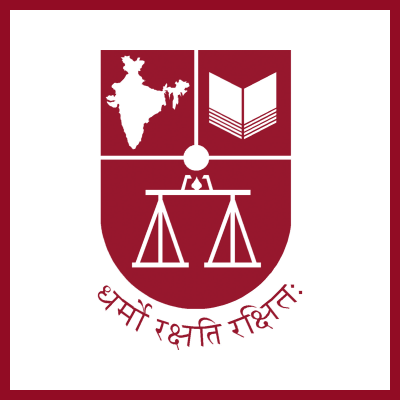Postgraduate Diploma inHuman Rights Law(PGDHRL)
Overview
The PGDHRL, which has been offered provided continuously since 1996, gives students knowledge and a critical understanding of the human rights discourse, and the roles and responsibilities of various human rights organisations at a global and domestic level, with a special focus on their impact in the Indian context. The programme equips graduates with the skills and knowledge required for successful advocacy and lobbying roles, as well as leadership roles in social impact organisations.
Programme Highlights:
- Gain familiarity with prevailing policy and law in the field of human rights, and understand emerging jurisprudential trends.
- Develop a theoretical grounding in human rights law that enables practice and application in a better-informed manner.
- Ideal for journalists, advocates, rights activists, and any one else interested in the interface between rights, discourse, and law.
Courses
Course 1: Introduction to Law and Legal Systems
This paper introduces the student to legal thinking and reasoning, and to legal systems, with a particular focus on Indian law and the Indian legal system. Those students who are from a non-law background would find this course particularly helpful.
Course 2: Jurisprudence and the concept of Human Rights
This paper provides an overview of human rights in the global and national spheres, and explores certain fundamental concepts relating to the notion of rights.
Course 3: Law and Enforcement of Human Rights under International Regime
This course should be seen as an introduction to some of the key concepts , structures and institutions which make up international human rights law. This course will trace out the origins of the Universal Declaration of Human Rights as well as the UN Charter which eventually leads to the adoption of a range of human rights treaties right from the ICCPR, ICESCR to the CAT and CRC. This course will cover the birth of international criminal law which is closely linked to the birth of the modern UN human rights system. The various institutional structures including charter based and treaty based bodies with reference to human rights will be adverted to. There will also be a discussion around the evolving areas of international human rights law through the Yogyakarta Principles and Yogyakarta Principles plus 10 which reference concepts such as sexual orientation and gender identity as grounds of discrimination.
Course 4: Protection and Enforcement of Human Rights in India
In this paper, students will trace the history of the development of human rights law in India, their implementation, and various legislative and judicial measures for the protection of human rights in the country.
Faculty

Professor of Law

Arvind Narrian
Visiting Faculty

Assistant Professor of Law
Fee
For Indian Nationals
| Regular Fees | |
| Application Fee | Rs. 2,000 |
| Admission Fee | Rs. 3,000 |
| Course Fee | Rs. 24,800 |
| Examination Fee | Rs. 3,200 |
| Total fees | Rs. 33,000 |
| Other fees | |
| Admission late fee | Rs. 500 |
| Continuation fee | Rs. 3,500 per year |
| Extension fee | Rs. 6,000 per year |
| Re-evaluation fees | Rs. 900 per paper |
For Foreign Nationals
| Regular fees | |
| Application Fee | Rs. 2,000 |
| Admission Fee | Rs. 3,000 |
| Course Fee | Rs. 74,500 |
| Examination Fee | Rs. 3,200 |
| Total fees | Rs. 82,700 |
Apply
Please note the following information regarding eligibility and the mode of applying for this programme.
Eligibility
The minimum eligibility for applying for this programme is a graduate degree (in law or other fields) from a recognized university.
Students with a degree certificate or its equivalent from any UGC-recognized university, Association of Indian Universities, CA, CS, ICWA, Open University/distance learning can apply. There shall be no restriction as to age, nationality, gender or employment status.
Important Dates
Admission Deadline: July 21, 2025
Classes are tentatively slated to begin by mid-August 2025.
For admission-related queries, please write to admissions.pace@nls.ac.in
FAQs
These are some commonly asked questions about this programme. For general questions about the NLSIU Distance Progamme, please visit the General FAQs page.
How many years does a student have to complete a programme?
Students of the Diploma programmes can complete their programme in up to five years from the year of their enrolment.
Students are required to pay the prescribed fee at the time of admission. If a student has to continue the programme beyond one academic year because of non-fulfilment of the prescribed requirements for the award of the diploma, they will be permitted to continue for the subsequent two academic years by paying a continuation fee as prescribed for each year.
After a period of 3 years if the student is unable to clear the programme they may be given an extension of another 2 years by paying Rs. 6,000/- per year for the subsequent two years as extension fee, provided they have cleared 2 out of the 4 courses in a Diploma programme. At the end of the fifth academic year, if the student is unable to complete the requirements for the award of the diploma, the admission stands automatically cancelled.
What if the candidate does not complete the course in 3 years?
If the candidate does not pass or complete the course, his enrollment ceases. He will have to register afresh by following the usual procedures prescribed for first admission. His performance at the earlier exams is not carried forward. He will have to redo the entire academic exercise prescribed, in the syllabus.
What is the scheme of Assessment?
Every course shall have a combination of formative and summative assessments. This will aid in regular learning and understanding concepts better. Please note the following details regarding the upcoming assessments: Assessment Details:
| Sl. No | Assessment Type | Assessment Pattern | Marks Allotment | Mode |
| 1. | Formative I | MCQs | 20 Marks | Online |
| 2. | Formative II | MCQs | 30 Marks | Online |
| 3. | Summative | Subjective | 50 Marks | In-person |
What is Grading Mechanism?
To successfully complete a programme, a student must take all three assessments (Formative I + Formative II + Summative) and obtain a cumulative grade point average (CGPA) of three and above out of seven. An aggregate of your performance will count towards the final grade in each course.
| Grade | Grade Description | Grade Point | Percentage of Marks |
| O | Meets the highest standards for the assignment or course | 7 | 70% and above |
| A+ | Meets very high standards for the assignment or course | 6 | 65% to 69.99% |
| A | Meets high standards for the assignment or course | 5 | 60% to 64.99% |
| B+ | Meets most of standards for the assignment or course | 4 | 55% to 59.99% |
| B | Meets basic standards for the assignment or course | 3 | 50% to 54.99% |
| C+ | While acceptable, falls short of meeting basic standards in several ways | 2 | 45% to 49.99% |
| C | Lowest passing grade | 1 | 40% to 44.99% |
| F | Failing, very poor performance | 0 | Below 40% |

Admission Status
Open till July 21, 2025
Duration
1 Year
Number of Courses
4
Course Fee (Indian Nationals)
Rs. 33,000/-
Course Fee (Foreign Nationals)
Rs. 82,700/-
